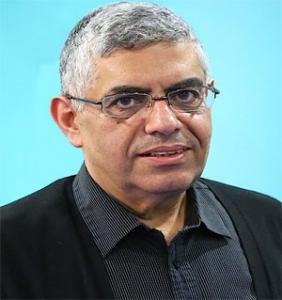Saying that one of the most prominent goals of the protest movement against the legislation plan that the current Israeli government is trying to advance, aimed at weakening the judicial system, is not to prejudice the fabricated image that the Zionist movement has produced of itself, and has become accepted by many countries, as tantamount to exposing the hidden. The goal constitutes, from the beginning, the religion and religion of the leaders of this movement, including politicians and activists.
It can be added that one of their most important goals is embodied in the reproduction of Zionism by asserting that its geneology indicates that it is a movement for the national liberation of the Jewish people, which established a “democratic oasis” in the authoritarian desert of the East, which still bears the connotation of a “villa in the forest”, as it expresses the view of Israel. And most of its Jewish population to the Middle East, where barbarism, devastation, backwardness and fundamentalism prevail around them, while they are only, in their "village", civilized and advanced, as one of the former prime ministers, Ehud Barak, repeated after the Arab Spring in 2011. He is the one who finally returned with force to Spotlight, as one of the leaders of the protests against the plan to weaken the judiciary.
On the occasion of the 75th anniversary of the founding of Israel, which fell on yesterday, the day before yesterday he published an article in Haaretz newspaper, in which he considered that the aforementioned plan carries within it a coup against Zionism, as it is the rescue ship that fulfilled the dream of the return of the Jews to their historical homeland. He stressed that despite the ancient peace agreements with Egypt and Jordan and the fresh Abrahamic normalization agreements, which could expand, the Middle East has always been a harsh and hostile environment. Israel should not underestimate any threat, and it must prepare for future tests, including threats from Iran, Hezbollah, and Hamas, noting that the Palestinian Authority is moving more and more away from meeting Israeli expectations from it.
Perhaps it should also be noted that although the doors of protests were closed to those calling for a link between the current movement and the future of peace by abandoning the occupation and its ideology, few voices among the Israelis themselves crept in from unofficial outlets, confirming that the insistence of most of the protest leaders and activists on the goal of defense On the "only democracy in the Middle East", if it does not reflect, in depth, a desire for Israel to turn into a normal state subject to all United Nations resolutions and international legitimacy, then it will remain suspected of being the kind of insistence that aims to continue circumventing its being An apartheid state, as confirmed recently by several international and Israeli human rights organizations, in direct connection with its establishment on the crimes of ethnic cleansing in 1948 and with the occupation in 1967.
Can it be said, in light of this, that this issue will continue to be subject to a process of accumulation?... If the establishment of Israel reminds us of the Palestinian Nakba, then we should recall here, and on the occasion of the anniversary of this founding, that the use of the term Nakba in the Israeli discourse circulated to depict cases Most of the disasters, he went through a similar process of entering through unofficial windows, and of accumulating to some extent. This is despite the fact that many governmental and popular measures were taken to counter this matter, culminating in the enactment of the “Nakba Law” in 2011, which aims to prevent the commemoration of the Palestinian Nakba, and to suppress initiatives to teach the country’s history differently from the Israeli narrative.
Conversely, it can be said that these silencing attempts kept the issue alive as an open wound that could flare up at any moment. As a matter of fact, following up on the uses of the word Nakba in Hebrew in its Arabic pronunciation has one measure of wit and another of seriousness. Among them, the Israeli poet Yonatan Geffen, who died this week and was previously subjected to a right-wing terrorist attack, because of his political stances, described the re-election of Benjamin Netanyahu in 2015 by saying that “the people chose again who bases their rule on intimidating the people,” considering that the day of the elections is “a catastrophe for the camp.” peace"! About "Arab 48"








Share your opinion
Reproducing the fabricated image of Zionism